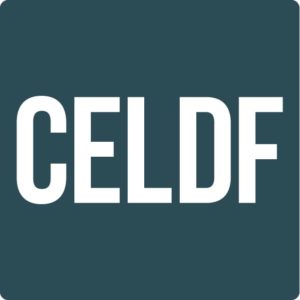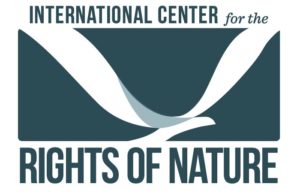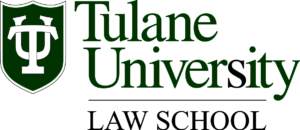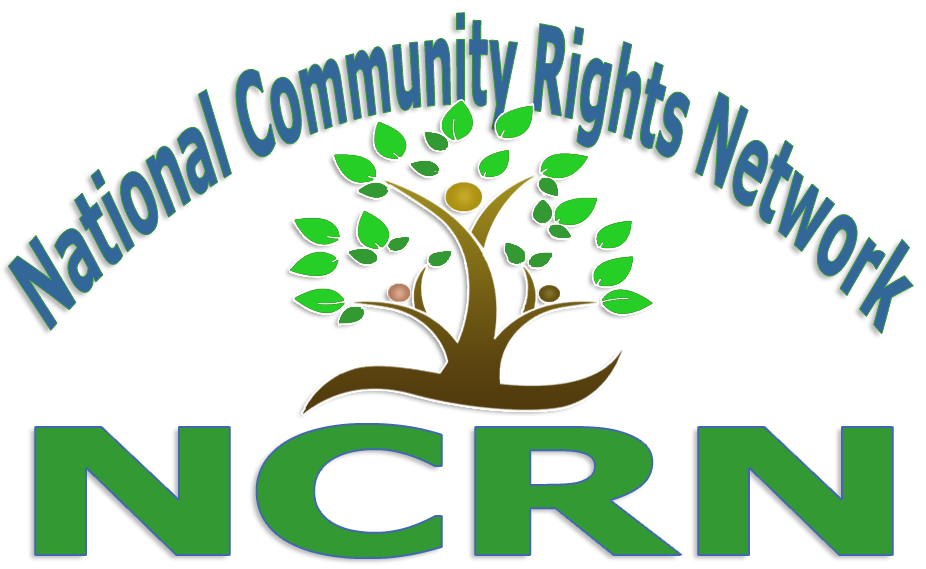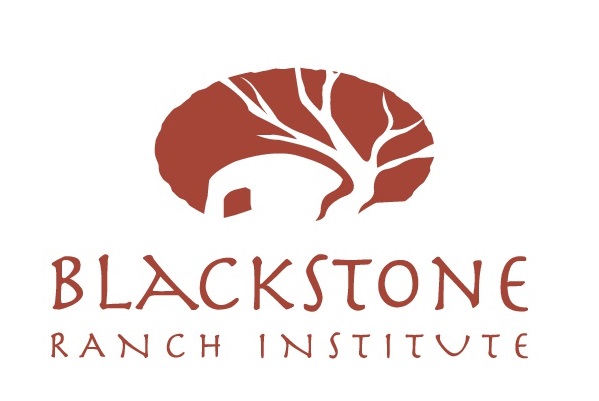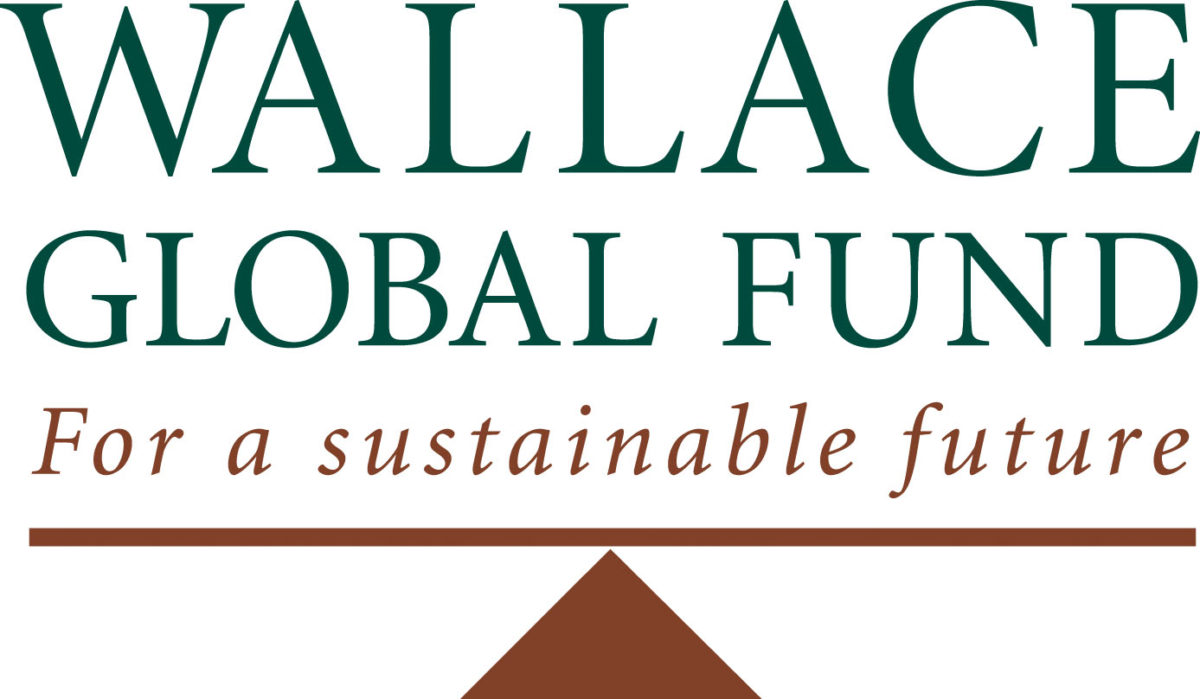In October 2017, the Community Environmental Legal Defense Fund (CELDF), with its International Center for the Rights of Nature, partnered with Tulane Law School to host the Rights of Nature Symposium: Driving Rights of Nature into Law – Opportunities, Risks, and Obstacles.
The Symposium brought together key leaders in the Rights of Nature movement – from Ecuador, Nepal, the United States, Australia, and Sweden, as well as from local communities and tribal nations.
At the Symposium, academics, lawyers, and activists developed a set of guidelines for recognizing and enforcing legal rights of nature. Known as the Rights of Nature Principles, they explain how today’s environmental laws are unable to protect the world’s “major ecosystems,” and the need for advancing laws which “recognize nature and its constituent ecosystems as interconnected, living components capable of possessing rights of their own….”
Today, communities, people, and even governments are recognizing that there is a need to make a fundamental shift in humankind’s relationship with the natural world, by placing the highest protections on nature through the recognition of legal rights.
Presenters
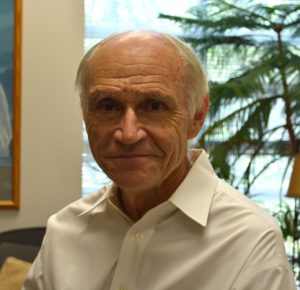
Professor Oliver Houck
Tulane University Law School
Mr. Houck attended Harvard College (1960) and Georgetown Law Center (l967), with three intervening years in the US Army, predominantly Korea. He served as a federal prosecutor in the US Attorney’s Office in Washington DC until l971, when he became general counsel to the National Wildlife Federation and part of the first wave of environmental law. In 1981 he moved to Louisiana where much of his work since centered, joining the law faculty of Tulane University. He has served on boards and panels of several national science and environmental organizations, and remains active on issues dealing with endangered species, water and coastal protection. He has also taught comparative environmental law and environmental human rights in universities abroad including Havana, Monterrey, Sevilla and Auckland. He has recently conducted a seminar exploring the legal rights of nature, and will be publishing an article on these rights in the Sevilla law review later this year.

Richard Mott
Wallace Global Fund
Richard N. Mott is director for environment at Wallace Global Fund. Before coming to WGF in 2007, he was vice president for international policy at World Wildlife Fund in the United States, having served as treaties officer at WWF-International outside Geneva, Switzerland in 1990. In these roles he was responsible for managing WWF’s work on climate change, wildlife trade, whaling, toxics, and development assistance. Prior to his work at WWF, he directed a program on atmospheric pollution at the Environmental Law Institute in Washington DC, and served as judicial clerk on the U.S. Court of Appeals for the Ninth Circuit. Mr. Mott received his B.S. from Tulane University in 1981 with distinction for an honors thesis in subtropical plant ecology. He received his Juris Doctor from the University of Oregon in 1985, where he was associate editor of the Oregon Law Review. He has published in various academic journals on topics ranging from NEPA law to air pollution policy, with articles in the popular press on biodiversity, climate change, whaling, and other environmental issues.
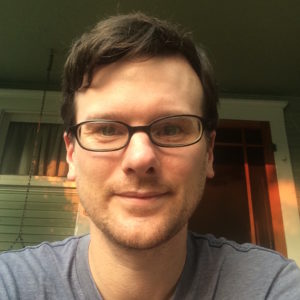
Ryan Talbott
Allegheny Defense Project
Born and raised in the Allegheny National Forest in northwestern Pennsylvania, Ryan holds a bachelor’s degree in Environmental Biology from Clarion University, a Master of Studies in Environmental Law from Vermont Law School, and is a graduate of Lewis and Clark Law School. He currently serves as executive director of the Allegheny Defense Project, where he works to protect public lands from industrial extraction and to stop the construction of new natural gas pipelines.
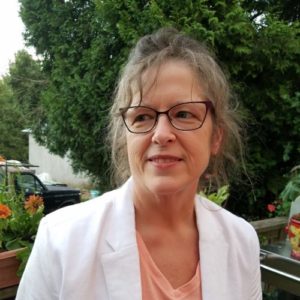
Tammy Belinsky
Environmental Lawyer, Virginia
Tammy Belinsky practices law in Virginia. Ms. Belinsky’s practice includes litigating mold exposure claims, right of way disputes, and environmental causes. The environmental law practice has included Clean Water Act enforcement, Clean Water Act permit challenges, and National Forest Management Act project challenges. Ms. Belinsky’s education in the sciences informs her law practice. Ms. Belinsky earned an A.A.S. in Ecology and Environmental Technology from Paul Smith’s College (1981), a B.S. in Public Health (Environmental Science and Engineering) from University of North Carolina (1983), a M.S. in Environmental Science and Engineering from Virginia Polytechnic Institute and State University (1988). Ms. Belinsky was awarded her J.D. at the University of Richmond in 1999 after surviving a career as a water-quality regulator for the Commonwealth of Virginia. Ms. Belinsky currently serves as a member of the Board of Directors to the Community Environmental Legal Defense Fund.
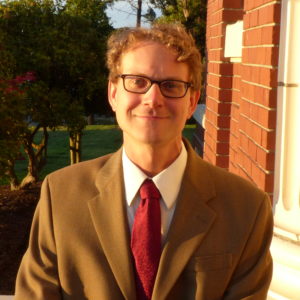
Lindsey Schromen-Wawrin
Shearwater Law
Lindsey Schromen-Wawrin works as a lawyer, primarily litigating constitutional law issues of the relative power of the people, governments, and corporations. He has defended ecosystems’ ability to be recognized by the courts, the people’s power of direct democracy, and activists subjected to domestic military spying. Lindsey earned a J.D. summa cum laude, with pro bono distinction, from Gonzaga University School of Law, and a B.A. from Oberlin College, where he studied systems ecology, environmental studies, and chemistry. He wrote “Adopting Instream Flow Rules in Washington State: Can Citizens Jumpstart the Process Through the Administrative Procedure Act?” 48 Gonz. L. Rev. 561 (2013). He lives in his hometown of Port Angeles, in the Pacific Northwest of North America.

Hugo Echeverria
Attorney, Ecuador
Attorney at Law, Master of Laws and Doctor of Jurisprudence. Hugo Echeverria practices environmental law since 2001. He also teaches environmental law, at undergraduate and graduate programs in Ecuador, as well as contributes to several environmental law journals in Latin America. Member of the World Commission on Environmental Law of IUCN. A citizen of a megadiverse country, Hugo’s environmental law work focuses on biodiversity issues, particularly those related to wildlife. Hugo’s current academic interests refer to the constitutional foundations of environmental law, the rule of law and environmental protection, and the emerging trend towards recognition of Nature as a subject of rights.

Stacy Long
Township Supervisor, Grant Township, PA
Stacy Long serves as the elected vice-chair of the Board of Supervisors in Grant Township, Indiana County, Pennsylvania. She was one of the primary advocates for the inclusion of rights for ecosystems and nature into the popularly-ratified home rule charter for Grant Township – the first home rule municipal charter in the country that incorporates the rights of nature. A graphic designer by trade, she lives in East Run, Pennsylvania, with her husband Mark and their two cats, Fester and Gomez. She also serves on the board of the Pennsylvania Community Rights Network (PACRN), which serves as a statewide advocate for the rights of municipal communities and nature. As part of the Grant Township Board of Supervisors, Long has defended Grant’s local laws in court over the past five years, in a lawsuit brought by the oil and gas industry against the Township in an effort to overturn those local laws.

Mari Margil
CELDF
Mari Margil is the Associate Director of the Community Environmental Legal Defense Fund (CELDF), www.celdf.org, where she leads the organization’s International Center for the Rights of Nature.
CELDF has assisted the first communities in the United States to secure the rights of nature in law, and is representing the first ecosystems to defend those rights. Margil assisted Ecuador’s Constituent Assembly to draft rights of nature constitutional provisions. In 2008, Ecuador became the first country to recognize these rights. She is now working in Nepal, India, Australia, and other countries – as well as with tribal nations – to advance rights of nature frameworks.
Margil received her Master’s degree in Public Policy and Urban Planning from Harvard University’s John F. Kennedy School of Government. She is a co-author of several books, including The Public Health or the Bottom Line and Exploring Wild Law: The Philosophy of Earth Jurisprudence.
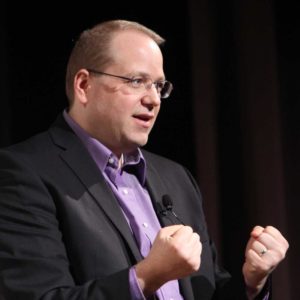
Thomas Linzey
CELDF
Thomas Linzey is an attorney and the Executive Director of the Community Environmental Legal Defense Fund (CELDF) – a nonprofit law firm that has provided free legal services to over five hundred local governments and nonprofit organizations since 1995.
Linzey is a cum laude graduate of Widener Law School and a three-time recipient of the law school’s public interest law award. He has been a finalist for the Ford Foundation’s Leadership for a Changing World Award, and is a recipient of the Pennsylvania Farmers Union’s Golden Triangle Legislative Award. He is admitted to practice in the United States Supreme Court, the Third, Fourth, Eighth, and Tenth Circuit Courts of Appeals, the U.S. District Court for the Western and Middle Districts of Pennsylvania, and the Commonwealth of Pennsylvania.
As well, he is a co-founder of the Daniel Pennock Democracy School – now taught in twenty-four states across the country which has graduated over 5,000 lawyers, activists, and municipal officials – which assists groups to create new community campaigns which elevate the rights of those communities over rights claimed by corporations.
Linzey is the author of Be The Change: How to Get What You Want in Your Community (Gibbs-Smith 2009), the author of On Community Civil Disobedience in the Name of Sustainability (PM Press 2016), and the co-author of We the People: Stories from the Community Rights Movement in the United States (PM Press 2016). He has served as a co-host of Democracy Matters, a public affairs radio show broadcast from KYRS in Spokane, Washington, and syndicated on ten other stations. He was featured in Leonardo DiCaprio and Tree Media’s film 11th Hour and We the People 2.0 (Official Selection of the Seattle International Film Festival), assisted the Ecuadorian constitutional assembly in 2008 to adopt the world’s first constitution recognizing the independently enforceable rights of ecosystems, and is a frequent lecturer at conferences across the country. His work has been featured in the New York Times, the Los Angeles Times, Mother Jones, the Nation magazine, and he was named, in 2007, as one of Forbes’ magazines’ “Top Ten Revolutionaries.” Linzey currently resides in Spokane, Washington.
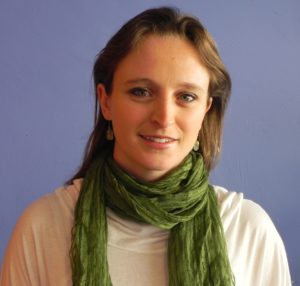
Natalia Greene
Pachamama Alliance, Ecuador
Natalia Greene, born in Ecuador, is a consultant for Rights of Nature at Fundación Pachamama and is the focal point for Rights of Nature in Ecuador for the Global Alliance for the Rights of Nature. She has been the Secretariat for all International Rights of Nature Tribunals. She graduated in Hampshire College, holds a Political Science master’s degree from FLACSO Ecuador and a specialization from UASB on Climate Change. She is finishing her master’s degree on Climate Change and Sustainable Development at UASB-Ecuador. She promoted the recognition of Rights for Nature in Ecuador’s Constitution and has worked on the environmental and indigenous aspects of the Yasuní-ITT Initiative to keep oil underground in the Amazon. From 2011 until 2013, Natalia Greene was the President of CEDENMA, the National Coordinating Entity for Environmental NGO’s, and nowadays she coordinates the Climate Justice National Platform. She is an Energy Efficiency Professor at UASB and a consultant to the Socio Environmental Unit at UASB.

Michelle Maloney
Australia Earth Laws Alliance, Australia
Dr. Michelle Maloney has a Bachelor of Arts and Law (Hons) from the Australian National University and a PhD in Law from Griffith University, Australia. She has more than 25 years experience creating and managing social and ecological justice programs, including ten years working with First Nations Peoples in Queensland, Australia. As Co-Founder and National Convenor of the Australian Earth Laws Alliance (AELA), Michelle manages the strategic direction and governance of AELA, including the extensive partnerships and networks that AELA has with the legal, academic, indigenous, and environmental advocacy communities. Michelle also designs and manages AELA programs and events, including Australia’s Rights of Nature Tribunals, and coordinates the work of more than 25 fantastic multi-disciplinary professional and student volunteers around Australia. Michelle has written a dozen articles, edited two books and teaches a regular “summer school” about Earth laws at Griffith University.
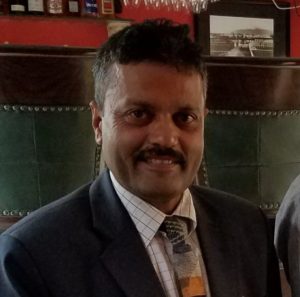
Shrawan Sharma
Center for Economic and Social Development, Nepal
Shrawan Kumar Sharma is a politics and conflicts analyst, devoted to studying the political dynamics of the constitutional policies of democracy, rights for ecosystems, climate change and violent and non-violent conflicts in Nepal. He has authored a number of research books and articles on politics, social democracy, conflict and peace, ecosystem rights, environmental democracy, peace negotiation, and grass-roots peace building in Nepal. Currently, he is working on advancing legislation to secure the legally enforceable rights of the Himalayas in Nepal, in collaboration with the Community Environmental Legal Defense Fund (CELDF).
Mr. Sharma was a journalist prior to the pro-democracy movement in Nepal. He has written many articles, and reports on politics, democracy, parliamentary affairs, and international events, which have appeared in weekly and daily print media in Nepal.
In 2002, Mr. Sharma joined the Center for Economic and Social Development (CESOD). Through CESOD, he has developed and implemented a Grass Roots Peace Building project in conflict-ravaged areas of Nepal, and has executed Cross Political Party programmes on democracy building, negotiating federalism, negotiating resource conflicts, and political policy reform in climate change and environment protection.
His expertise includes building democracy, conflict analysis, system and constitutional reform, and electoral system analysis and reform. Mr. Sharma is a well-known and established dialogue and discussion facilitator in Nepal. He studied law and political science.
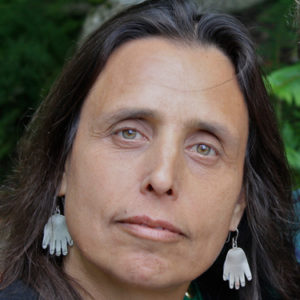
Winona Laduke
White Earth Land Recovery Project (WELRP)
Winona LaDuke is an internationally renowned activist working on issues of sustainable development renewable energy and food systems. She lives and works on the White Earth reservation in northern Minnesota, and is a two time vice presidential candidate with Ralph Nader for the Green Party. She works nationally and internationally on the issues of climate change, renewable energy, and environmental justice with Indigenous communities. In her own community, she is the founder of the White Earth Land Recovery Project, one of the largest reservation based non-profit organizations in the country, and a leader in the issues of culturally-based sustainable development strategies, renewable energy, and food systems. In this work, she also continues national and international work to protect Indigenous plants and heritage foods from patenting and genetic engineering. A graduate of Harvard and Antioch Universities, she has written extensively on Native American and environmental issues. The author of five books, including Recovering the Sacred, All our Relations, and a novel, Last Standing Woman, she is widely recognized for her work on environmental and human rights issues.

Karenna Gore
Center for Earth Ethics
Karenna Gore is an attorney, advocate, writer and educator, and serves as Director of the Center for Earth Ethics. Her past experience includes work in the legal center of Sanctuary for Families, which serves victims of domestic violence and trafficking. She was also Director of Community Affairs for the Association to Benefit Children (ABC), which provides early childhood education and other services for families living in poverty in New York City. She worked on the editorial staff of Slate magazine and is the author of Lighting the Way: Nine Women Who Changed Modern America (2006). Karenna is a graduate of Harvard College, Columbia Law School, and Union Theological Seminary. She is the eldest child of Al and Tipper Gore and lives in New York City with her three children.

Ben Price
CELDF
Ben has worked with CELDF since 2004 to coordinate community rights organizing across the country, and has advised and organized in hundreds of communities, many of which adopted community bills of rights that codify the rights of human communities and the rights of the nature, while prohibiting corporate activities that violate those rights. Ben worked closely with Tamaqua Borough, Pennsylvania in 2006 to make them the first community on earth to adopt legally enforceable rights for nature. He advised Pittsburgh City Council and assisted in drafting Pittsburgh’s Protection from Natural Gas Drilling Ordinance. He works with colleagues in Colorado, Washington, Oregon, New Hampshire, Pennsylvania, Ohio, and California to train, educate and organize local people to adopt community-rights ordinances and charter amendments that subordinate corporate privileges to the rights of people and nature. Ben is also organizational liaison with the National Community Rights Network and assists strategic organizing across the country to support community rights movement-building.
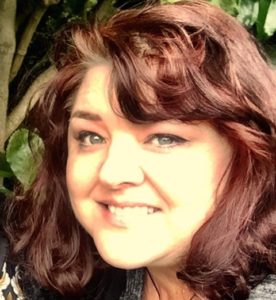
Shannon Biggs
Movement Rights
Shannon Biggs is the co-founder and Executive Director of Movement Rights, advancing legal rights for communities, indigenous peoples and ecosystems. Working with California communities, and with Native American tribes, Shannon assists communities to ban harmful projects by passing binding laws that assert the rights of communities and nature over corporate projects. Internationally she is a recognized leader of the rights of nature/Mother Earth movement, a co-founder of the Global Alliance for the Rights of Nature, and the co-author/editor of two books including “The Rights of Nature, Making the Case for the Universal Declaration on the Rights of Nature.” Though Movement Rights she also leads trainings and is a lecturer of CELDF’s Democracy Schools. Previously she was a senior staffer at Global Exchange and the International Forum on Globalization. She holds a Masters of Science degree from the London School of Economics (LSE) in Economics — the Politics of Empire.
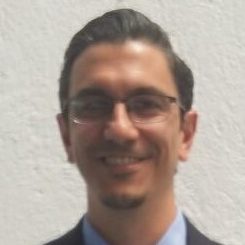
Francisco Bustamante
Ecuador
Francisco Bustamante Romo Leroux, LLM in Energy and Environmental Law, Tulane Law School ’08 , Law degree Universidad de las Américas ’04 (Quito-Ecuador). He has worked extensively in the public sector as an environmental advisor under the Ministry of Environment of Ecuador for the Environmental and Social Restoration Program from (2010- 2012). In 2013 he joined the Constitutional Court of Ecuador, where he acted as a legal advisor (2016). He has been teaching Environmental Law at Universidad Internacional del Ecuador since 2009, and teaching constitutional environmental and constitutional procedure courses.
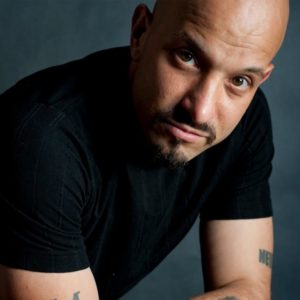
Jason Flores-Williams
Law Office of Jason Flores-Williams
Jason Flores-Williams, attorney and author, has spent his life on the front lines of the American condition. When he was 13, his family was ripped apart by the U.S. War on Drugs. His father was sentenced to 35 years in prison, and he, his mother, and sister were thrown into abject poverty. When he was 27, while living in a garage in San Francisco, he wrote his first novel, The Last Stand of Mr. America, published by Canongate and Grove Atlantic. In his 30’s, he covered dissent for magazines ranging from High Times to the Nation to the Brooklyn Rail. His piece, In The Battle of the Open Heart, on Occupy Wall Street, is recognized as a protest classic. After becoming an attorney in his mid-30’s, JFW went to Post-Katrina New Orleans to represent indigent clients on death row at Angola. He has since run his own civil rights legal practice in Denver doing landmark constitutional litigation and trial work while representing political outlaws, dissidents, and the dispossessed. Most notably, he recently sought and earned federal class certification for thousands of homeless persons whose rights were violated in what has come to be known, disgracefully, as the Denver Homeless Sweeps. He also represents several defendants who were arrested on inauguration day in Washington D.C. in a mass prosecution in which the government has charged more than 200 protestors with conspiracy so that they are now facing more than 75 years each for protesting Donald Trump.
JFW has appeared as both an author and attorney on CNN, BBC, New York Times, Washington Post, and the Nation. His grandfather was one of the founding fathers of LULAC, League of United Latin American Citizens.
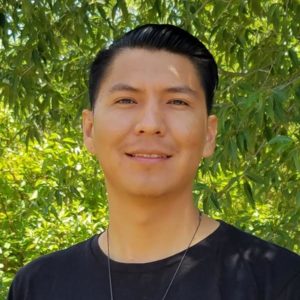
Deon Ben
Navajo Nation, Grand Canyon Trust
Deon Ben is originally from the community of Tohatchi, New Mexico and a member of the Navajo Nation. Deon earned his B.S. in environmental studies at Northern Arizona University and is currently completing his M.S. in environmental science and policy at NAU. Growing up on Navajo land, Deon experienced the perfect mesh of traditional knowledge and environmental education, which led him to his graduate work focusing on incorporating traditional ecological knowledge to address animal husbandry and grazing within tribal communities that are facing climate challenges. Deon is the Native America Program Manager for the Grand Canyon Trust. Deon enjoys the isolation and natural beauty of his traditional homeland and looks forward to positive environmental change.
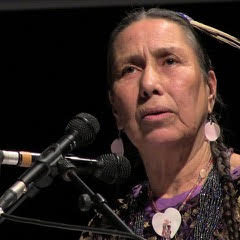
Casey Camp-Horinek
Ponca Tribe of Oklahoma
Casey Camp-Horinek (her Ponca name is Zhuthi) is an elder and tribal councilwoman of the Ponca Tribe of Oklahoma, as well as an Emmy award winning actress. Like her brother, the late Carter Camp, who was a leader in the American Indian Movement, Casey has been an outspoken activist for her people, for the Rights of Mother Earth, and against the massive oil pipelines, injection wells and fracking in Oklahoma. “We are averaging one death per week in a community of 800 people. All of these are from cancers and unknown autoimmune diseases from the fracking industry.” She is on the board of Movement Rights and working toward recognizing legal rights of nature to ban fracking on tribal lands. She travels globally to speak on concerns of Indigenous communities throughout the hemisphere.
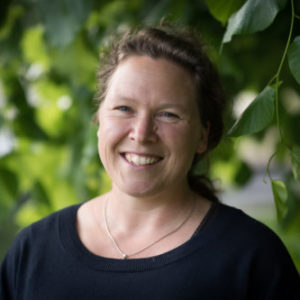
Pella Thiel
Rights of Nature Sweden
Pella Thiel is co-founder of the Swedish Transition Network and End Ecocide Sweden and has successfully put ecocide law on the political agenda. She coordinated the first two Rights of Nature Conferences in Sweden. She has edited two books on nature interpretation and is currently writing a book on rights of nature in Swedish. Pella trained as an ecologist and enjoys having her hands in the soil at the smallholding in the archipelago of Stockholm where she lives. She is part of the eco-psychology/activist NGO Lodyn and the UN Harmony with Nature initiative.
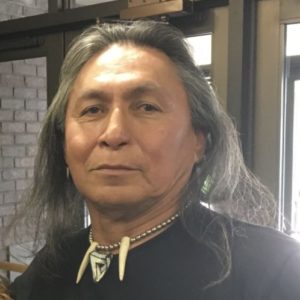
Bill Greendeer
Bill Greendeer is a tribal member of the Hoočąk Nation, pronounced “Ho-Chunk,” in Wisconsin. Bill is a member of the Deer Clan, devoted to protecting the Sacred Earth and Water. His Hoočąk name is rekumani, which means Deer that run into the south wind. He walked the length of the Enbridge Line 61 pipeline corridor in Wisconsin, to raise awareness of the pipeline’s impact on people, lands, and water. During the month-long walk, he brought attention to the sacred Ceex-haci effigy mounds, which are not yet registered on the state catalog, and which appear to have been disturbed by the pipeline construction. He has also been active in the opposition to frac sand mining and land mining of the gifts of the Creator.
Sponsors
If you were unable to join us at the Symposium,
check out the conference program and watch the conference panels and speakers below.
Key Information
New Orleans, Louisiana, USA
The Community Environmental Legal Defense Fund’s International Center for the Rights of Nature partnered with the Tulane University Law School to host the Rights of Nature Symposium. The Symposium brought together key leaders from Nepal, Australia, Ecuador, and other countries, along with tribal nations and local communities, who are working to advance Rights of Nature frameworks.
WHEN
Friday, October 27, 2017
8:30am – 7:00pm Central Daylight Time (CDT)
LIVESTREAMING & VIDEOS
The Symposium was livestreamed on the Tulane Law School YouTube Channel. Videos of panels and speakers are also available below.
FOLLOW THE SYMPOSIUM ON TWITTER AND FACEBOOK
LOCATION
Tulane University Law School Weinmann Hall
6329 Freret Street
New Orleans, Louisiana 70118
United States
HOW TO GET INVOLVED
If you are interested in learning more about the Rights of Nature, and how you can become involved, please contact us and sign up to stay updated on the latest Rights of Nature news.
Conference Program
9:30 – 10 am: Introductions & Welcome
- Mari Margil, CELDF
- Professor Oliver Houck, Tulane Law School
- Dean David Meyer, Tulane Law School
10 – 11:30 am: Limitations of Conventional Environmental Law (Panel)
- Thomas Linzey, CELDF (moderator)
- Professor Oliver Houck, Tulane Law School
- Michelle Maloney, Australia Earth Laws Alliance
- Richard Mott, Wallace Global Fund
- Ryan Talbott, Allegheny Defense Project
- Tammy Belinsky, Environmental Law Group
11:30 AM – 12:15 pm: Karenna Gore, Center for Earth Ethics (Keynote)
- Introduction: Marion Gilliam, Myrin Institute
1:30 – 3:15 pm: Recognizing the Rights of Nature in Law (Panel)
- Mari Margil, CELDF (moderator)
International Perspective:
- Natalia Greene, Pachamama Alliance, Ecuador
- Shrawan Sharma, Center for Economic and Social Development, Nepal
- Pella Thiel, Rights of Nature Sweden
United States Perspective:
- Stacy Long, Grant Township, Pennsylvania
- Ben Price, CELDF
- Shannon Biggs, Movement Rights
Indigenous Perspective:
- Bill Greendeer, Ho-Chunk Nation
- Casey Camp Horinek, Ponca Tribe of Oklahoma
- Deon Ben, Navajo Nation, Grand Canyon Trust
3:30 – 5 pm: Defending and Enforcing the Rights of Nature (Panel)
- Thomas Linzey, CELDF (moderator)
- Hugo Echeverria, Ecuador
- Francisco Bustamante, Ecuador
- Lindsey Schromen-Wawrin, CELDF
- Jason Flores-Williams, JFW Law, Colorado
5 – 7 pm: Winona LaDuke, White Earth Land Recovery Project (Keynote)
- Introduction: Richard Mott, Wallace Global Fund
Symposium Videos
Watch the videos of panelists and speakers at the Rights of Nature Symposium or read the transcript here. Learn about the Rights of Nature and how you can become involved in this growing movement: reach out to us at info@celdf.org.
Keynote Speaker: Karenna Gore
Karenna Gore, of the Center for Earth Ethics, keynoted the Symposium.
Introduction and Panel 1: Limitations of Conventional Environmental Law
Panel 1 at the Symposium – Limitations on Conventional Environmental Law – moderated by CELDF’s Thomas Linzey, and featured Richard Mott of the Wallace Global Fund, Tammy Belinsky of the Environmental Law Group, Ryan Talbott of the Allegheny Defense Project, Michelle Maloney of the Australian Earth Laws Alliance, and Professor Oliver Houck of Tulane Law School.
Panel 2: International Perspective
Panel 2 at the Symposium – Recognizing the Rights of Nature in Law – provided an international, U.S., and indigenous perspective on advancing the Rights of Nature into law.
Part 1: International Perspective
Featuring the international perspective with panelists Natalia Greene of the Pachamama Alliance in Ecuador, Shrawan Sharma of the Center for Economic and Social Development in Nepal, and Pella Thiel of Rights of Nature Sweden.
Part 2: U.S. Perspective
Featuring the United States perspective with panelists Ben Price of CELDF, Shannon Biggs of Movement Rights, and elected supervisor Stacy Long of Grant Township, Pennsylvania.
Part 3: Indigenous Perspective
Featuring the indigenous perspective with panelists Bill Greendeer of the Ho-Chunk Nation, Casey Camp-Horinek of the Ponca Tribe of Oklahoma, and Deon Ben, a member of the Navajo Nation and staff person with the Grand Canyon Trust.
Panel 3: Defending and Enforcing Rights of Nature Laws
For Panel 3 at the Symposium – Defending and Enforcing the Rights of Nature – panelists described how ecosystems themselves are defending their rights in Ecuador and the U.S. Panel 3 featured moderator Thomas Linzey of CELDF, attorneys Francisco Bustamente and Hugo Echeverria of Ecuador, and attorneys Lindsey Schromen-Wawrin and Jason Flores-Williams of the U.S.

